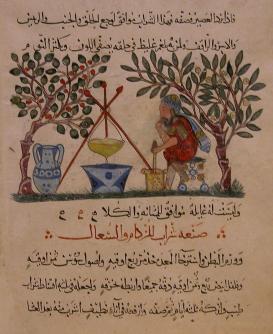Hannah Erlwein is currently working on her second book, with the working title (Un)scientific Methods: Debating Analogical Reasoning in Premodern Islam. The broader question that drives her project is what scientific knowledge was—and how it could be attained—according to premodern practitioners of the Islamic sciences of kalām (theology) and falsafa (philosophy). The project will shed light on these thinkers’ often vigorous debates over this question by investigating their attitudes to analogical reasoning. Some praised analogical reasoning as a suitable method for gaining knowledge in their science, arguing that something unfamiliar could be known based on a similarity with something familiar. Others, however, rejected analogical reasoning as falling short of their epistemic standards of science. This project traces shifts in attitude to analogical reasoning in several historical actors, including al-Ashʿarī, al-Māturīdī, Ibn Sīnā, Ibn Rushd, and Ibn Taymiyya, between the ninth and the fourteenth century CE.

"Physician Preparing an Elixir," folio from a Materia medica of Dioscorides
Source: Metropolitan Museum of Art
Project
(Un)scientific Methods: Debating Analogical Reasoning in Premodern Islam
Past Events
Premodern Islamic Science: Demarcating Experiential Knowledge and Scientific Knowledge in the Premodern Islamic Context (ca. 9th-14th century CE) (Part 1)
MOREPremodern Islamic Science: Demarcating Experiential Knowledge and Scientific Knowledge in the Premodern Islamic Context (ca. 9th-14th century CE) (Part 2)
MORE